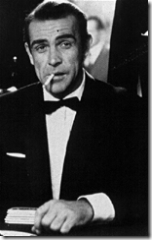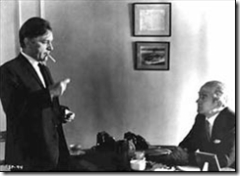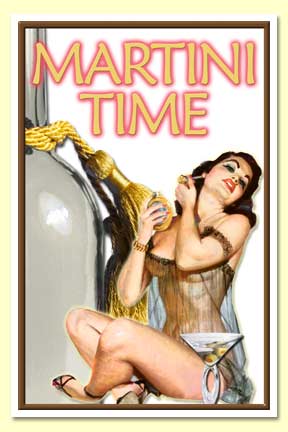In my late teens, I went through a period of wanting to be a diplomat for the State Department. The prospect of traveling, learning languages, and being an actor in world history appealed to me. My father, a former case officer in Vietnam, recommended joining the CIA instead. As he put it to me (and as old Company hands had put it to him), diplomats only ever think they know what is going on in a given country. It is the spies that really know.
The knowledgeableness — and even competence — of intelligence agencies have been called into question over the past few years with the inability to track down bin Laden and, before that, the inability to accurately assess Iraq’s nuclear capabilities. I was surprised to read recently in an article by John Le Carré for The New Yorker that, contrary to my father’s impression, this may have long been the case.
Discussing his time as an insider in British intelligence, Le Carré writes about his disappointment with the discrepancy between what he had imagined it to be and what it turned out to actually be. In terms reminiscent of the longings of many career professionals, he describes “fantasizing about a real British secret service, somewhere else, that did everything right that we either did wrong or didn’t do at all.”
As an IT consultant I encounter many technical experts, and am a bit of one myself in some rather abstruse areas. A common frustration among these experts is that expertise does not always grant them authority, as one would expect in a meritorious modern corporate society. Instead, contrarily, they find that corporate authority tends to confer expertise. The managerial classes inside the corporations we work with are able to dictate technical directions not because they know about these technologies, but rather simply because they have the authority to do so.
In part this is simply how the system works. Expertise and authority go together, but not in the ways one would expect. In the corporate world, authority granted through expertise in one area, say managerial or financial expertise and a track record of success, grants additional and possibly unjustified acknowledgment of expertise in unrelated fields.
Another reason, however, must be due to the incommunicability of IT expertise. The field is complicated and its practitioners are not generally known for their communication abilities. Whereas the spooks of the intelligence world are not allowed to communicate their detailed knowledge to the layman, the IT professional is simply unable to. IT professionals speak “geek talk,” while business professionals speak corporate speak, and translators between these two dialects are few and far between. Philosophically, however, such translations and transitions are possible, and the people who can do it make excellent careers for themselves.
What happens, however, when the whole notion of expertise is called into question. As Stanley Rosen once said of Nietzsche, what happens when the esoteric becomes exoteric, and what we all know about our own failings and shortcomings as “experts” becomes public knowledge?
Such a thing seems to be happening now with the world economic crisis (I’m waiting for an expert to come along with a better moniker for this downward spiral we seem to all be going through, but for the moment “WEC” seems to be working). The world economic crisis seems to have occurred because people who should have known better: bankers, traders, investors and economists, never put a stop to a problem with bad debt, bad credit and bubble markets of worldwide proportions. As I understand it, all these people knew things weren’t kosher but were hoping to take advantage of market distortions to make huge profits before bailing out at the last moment, but like the unfortunate fellow who raced James Dean in Rebel Without a Cause, they all failed to jump when they were supposed to.
Yet they were the experts. As back up we have men like Henry Paulson at the Treasury to fix these messes, and he started out sounding authoritative about what needed to be done. We needed $700 billion to fix the situation or at least to make it not so bad and the government had a plan, we were told, to do so. However, the plan has mutated and meandered to the point that it now looks like it is being made up as we go along. This in itself may not be such a bad thing, but is this meandering the sort of thing experts are supposed to do?
Recently the heads of the automotive industry came to Washington to ask for bailout money and, as we now all know, they didn’t have a plan for how they planned to spend it. Is that how experts act?
After the flood, the big discussion now seems to be whether we should try to preserve our laissez-faire system or try to improve it and correct it with more regulation. The sages of Wall Street seem to actually like this solution, which is in itself an admission that they no longer see themselves as experts or, apparently, of even being capable of managing their own affairs. They would prefer that another authority correct their own excesses for them, since they no longer trust themselves.
But if there are no experts any longer on Wall Street, where all they had to do was look after their own interests, can we really expect to find one in Washington that will look over all of our interests? I don’t mean to be a knee-jerk conservative on this matter, but does it make sense that when our clever people make it clear that they are not so clever or competent after all, we must look for someone that much more clever than all of them put together to fix things? Can that level of expertise even exist?
And so I find myself fantasizing about a different America, indeed a different world, in which they get everything right that we either do wrong or don’t do at all.


